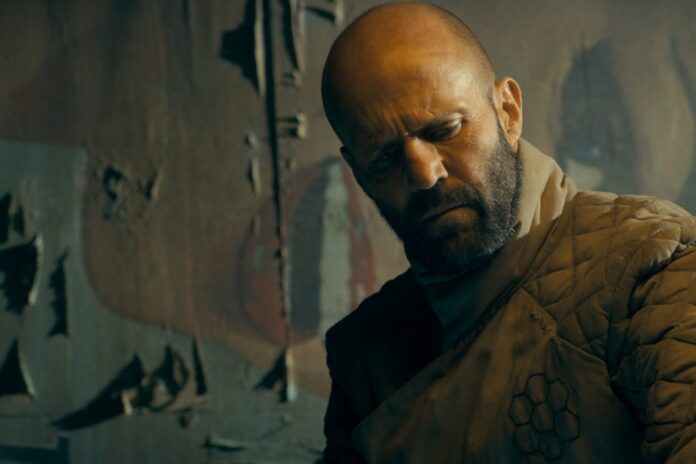The hive is our society. The role of Beekeepers is to protect it, at all costs. The members of this clandestine organization carry out their activities outside the laws for the common good. Here are the main points of the new film by David Ayer (Suicide Squad, Bright).
The Beekeeper, however, is about a retired agent, Adam Clay (Jason Staham), who lives peacefully in the barn of Eloise Parker (Phylicia Rashad). This elderly lady is “the only person who has ever looked after” the man who is now a bee breeder.
One day, she is the victim of fraud and has money stolen from all her bank accounts, including the millionaire one of a charity she ran. The scammer operates from a flashy call center in front of a crowd of admiring young telephone operators. The scene is painfully crude, but constitutes an original starting point which sheds light on a scourge often ignored.
A man of principle, Adam puts on his enormous cap and then goes to the scammers’ offices to reduce them to ashes. This marks the start of his vengeful crusade that will take him to the top of a conglomerate chaired by the former director of the CIA (Jeremy Irons). He must deal with his hateful stepson (Josh Hutcherson), who uses his data collection business to steal from the most vulnerable.
Before violently knocking out dozens of security guards, mercenaries and commandos, in addition to killing a good number of them – the fights are rather well choreographed, but nothing transcendent – Adam meets Verona Parker (Emmy Raver-Lampman), FBI special agent and daughter of Eloise. She tracks down her mother’s avenger out of professional duty, but is not unhappy to see the bandits dropping like flies. The relationship between the two characters, however, is limited to the exchange of a few approving glances, as Jason Staham (the Transporter, Crank, Mechanic film series) once again plays a role of few words. The brilliant Jeremy Irons and Josh Hutcherson have some good dialogue, but nothing more.
The screenplay by Kurt Wimmer (The Expend4bles, Salt) explores interesting avenues – trust in institutions, limits of the legal system – but they are poorly exploited and remain pretexts for Jason Staham to break down. His character mentions good and evil at one point, period. As a movie buff, we can say that we are exasperated by a ridiculous story or that we are entertained by the conviction of an angry beekeeper.
















































